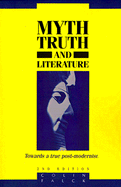Book contents
Summary
Poetry raised to its highest power is then identical with religion grasped in its inmost truth …
santayanaIn the opening sections of the Critique of Pure Reason Kant attempted to lay bare the necessary conditions for our possession of self-conscious experience – for our awareness of being surrounded by a world of things or objects which endure quite apart from our perceptions of them – but did not in fact succeed in laying bare these necessary conditions in their entirety. In leaving out from his philosophical picture any consideration of our necessary embodiedness, he not only failed to give an adequate account of the full conditions for the possibility of self-conscious experience, but he also deprived us of any means of understanding how language itself – on which the possibility of our self-conscious experience partly depends – should have come into existence in the first place. How is it, we may find ourselves wanting to ask, that we can ever arrive at the kind of concept-using subjectivity which Kant simply took to be definitional to the experiencing subject's nature – in other words, at the Kantian “I think” which must be able “to accompany all my presentations”? A part of the answer must lie in the biological development, or from another point of view the metaphysical transition, which takes place from mere animal movement to a form of bodily gesturing which gives us our most fundamental, or most primitive, basis for the distinction between ourselves and that which is not ourselves.
- Type
- Chapter
- Information
- Myth, Truth and LiteratureTowards a True Post-modernism, pp. 115 - 146Publisher: Cambridge University PressPrint publication year: 1994



